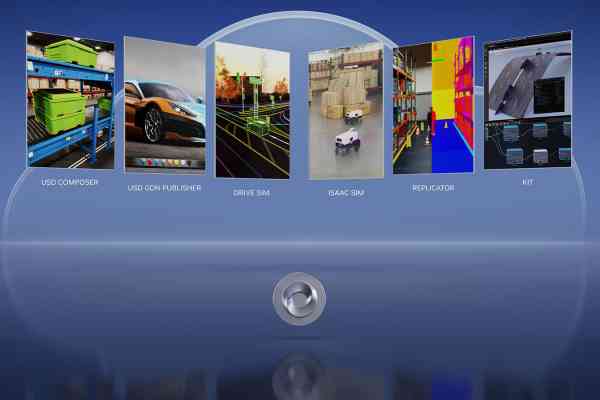January 7th, 2021 | 09:50 CET
JinkoSolar, Defense Metals, BYD - demand boom leads to catastrophe!
The sales figures for all major electric car manufacturers for the full year 2020 are on the table. 100% more e-cars were sold compared to the same period last year. But even more significant for the future is that vehicles with electric motors have overtaken pure combustion engines in new deliveries. The disruptive replacement is in full swing. However, shortages are emerging in the raw materials needed for the production of batteries and motors.
time to read: 2 minutes
|
Author:
Stefan Feulner
ISIN:
CA2446331035 , US47759T1007 , CNE100000296
Table of contents:
Author
Stefan Feulner
The native Franconian has more than 20 years of stock exchange experience and a broadly diversified network.
He is passionate about analyzing a wide variety of business models and investigating new trends.
Tag cloud
Shares cloud
Shortage of raw materials
In addition to lithium, which is needed for the production of batteries, there is also an enormous surplus of demand for other raw materials. This demand will become much more acute in the coming years. Permanent magnets for electric motors are produced based on rare earth metals. In ten years, the experts at Adamas Intelligence predict that demand for rare earth oxides for use in magnets will rise from USD 2.98 billion to USD 15.65 billion. The analysts at Adamas Intelligence see by far the most significant demand primarily for rare earth magnets such as neodymium, praseodymium, dysprosium and terbium. Even more severe is the short-term view of three to five years. The demand for rare earths is growing so enormously that the already insufficient production capacities will not be enough by far. It is a must to make significant investments in the mining industry to saturate demand to some extent.
China's superiority
The People's Republic of China has a virtual monopoly with 80% of rare earth metals production. Politicians are desperately looking for alternatives in Europe or North America. Defense Metals, a mineral explorer, is at the top of the list. Founded in 2016, the Company focuses on acquiring mineral deposits that contain metals and elements used in the production of renewable energy technologies, such as rare earth magnets. Research is underway at the Wicheeda project in the province of British Columbia. The Company says mineral resources are 4.9 million tons at an average grade of 3.02% LREO (light rare earth metals) and inferred mineral resources of 12.1 million tons at an average grade of 2.90% LREO.
Cash boost and the share price jumps
At the end of December, the Company announced that it would receive approximately CAD 632,000 from the exercise of 3.157 million warrants. These funds will be used to strengthen working capital and, in particular, to complete the preliminary economic assessment (PEA) of the project. The stock market is slowly recognizing the extreme demand for rare earth metals. Defense Metals shares have almost doubled to CAD 0.30 in the past four weeks and are close to their 2018 all-time high, but the stock market value is currently just under EUR 10 million. Given the further increase in demand due to the electric car boom, there is still significant room for improvement.
"Build your dreams" continues
The importance of the procurement of lithium and rare earth metals is shown by the delivery figures for BYD for December. The Chinese Company sold a total of 56,322 vehicles in the last month of fiscal year 2020. In the previous month, the figure was 53,943 units. Compared to December 2019, this represents a significant increase of over 13,000 units. Crucially, however, the report showed that for the first time in the Company's history, more NEVs were sold than internal combustion vehicles.
Less growth than competitors
Indeed, BYD is still well ahead of competitors such as NIO or Xpeng in terms of delivery figures. However, sales of electric cars were lower in percentage terms than those of its main Chinese competitors compared to the previous month. Although the share started the day almost 3% down, it managed to get back into the black over the course of the day.
New record
The Chinese photovoltaic producer JinkoSolar was able to break its world record. An efficiency of 24.9% was achieved for a large, n-type, TOPCon, monocrystalline solar cell. According to the Company, the monocrystalline solar cell was manufactured on a high-quality, low-defect CZ mono-Si substrate. Earlier this year, when the cell still had an efficiency of 24.2%, JinkoSolar said the cell was based on the HOT design and featured tunnel oxide passivated contact technology.
Conflict of interest
Pursuant to §85 of the German Securities Trading Act (WpHG), we point out that Apaton Finance GmbH as well as partners, authors or employees of Apaton Finance GmbH (hereinafter referred to as "Relevant Persons") may in the future hold shares or other financial instruments of the mentioned companies or will bet on rising or falling on rising or falling prices and therefore a conflict of interest may arise in the future. conflict of interest may arise in the future. The Relevant Persons reserve the shares or other financial instruments of the company at any time (hereinafter referred to as the company at any time (hereinafter referred to as a "Transaction"). "Transaction"). Transactions may under certain circumstances influence the respective price of the shares or other financial instruments of the of the Company.
Furthermore, Apaton Finance GmbH reserves the right to enter into future relationships with the company or with third parties in relation to reports on the company. with regard to reports on the company, which are published within the scope of the Apaton Finance GmbH as well as in the social media, on partner sites or in e-mails, on partner sites or in e-mails. The above references to existing conflicts of interest apply apply to all types and forms of publication used by Apaton Finance GmbH uses for publications on companies.
Risk notice
Apaton Finance GmbH offers editors, agencies and companies the opportunity to publish commentaries, interviews, summaries, news and etc. on news.financial. These contents serve information for readers and does not constitute a call to action or recommendations, neither explicitly nor implicitly. implicitly, they are to be understood as an assurance of possible price be understood. The contents do not replace individual professional investment advice and do not constitute an offer to sell the share(s) offer to sell the share(s) or other financial instrument(s) in question, nor is it an nor an invitation to buy or sell such.
The content is expressly not a financial analysis, but rather financial analysis, but rather journalistic or advertising texts. Readers or users who make investment decisions or carry out transactions on the basis decisions or transactions on the basis of the information provided here act completely at their own risk. There is no contractual relationship between between Apaton Finance GmbH and its readers or the users of its offers. users of its offers, as our information only refers to the company and not to the company, but not to the investment decision of the reader or user. or user.
The acquisition of financial instruments entails high risks that can lead to the total loss of the capital invested. The information published by Apaton Finance GmbH and its authors are based on careful research on careful research, nevertheless no liability for financial losses financial losses or a content guarantee for topicality, correctness, adequacy and completeness of the contents offered here. contents offered here. Please also note our Terms of use.




